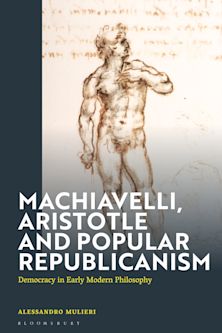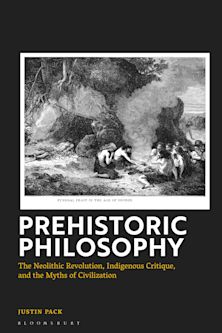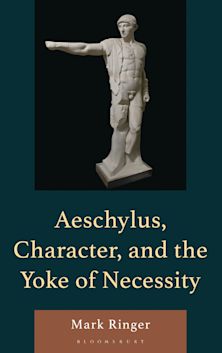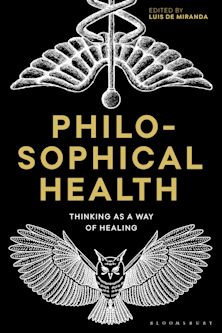- Home
- ACADEMIC
- Philosophy
- Ancient Philosophy
- Historical Dictionary of Ancient Greek Philosophy
This product is usually dispatched within 1 week
- Delivery and returns info
-
Free CA delivery on orders $40 or over
You must sign in to add this item to your wishlist. Please sign in or create an account
Description
The ancient Greeks were not only the founders of western philosophy, but the actual term "philosophy" is Greek in origin, most likely dating back to the late sixth century BC. Socrates, Plato, Aristotle, Pythagoras, Euclid, and Thales are but a few of the better-known philosophers of ancient Greece. During the amazingly fertile period running from roughly the middle of the first millennium BC to the middle of the first millennium AD, the world saw the rise of science, numerous schools of thought, and—many believe—the birth of modern civilization.
This second edition of Historical Dictionary of Ancient Greek Philosophy covers the history of Greek philosophy through a chronology, an introductory essay, a glossary, and an extensive bibliography. The dictionary section has over 1500 cross-referenced entries on important philosophers, concepts, issues, and events. This book is an excellent access point for students, researchers, and anyone wanting to know more about Greek philosophy.
Table of Contents
Acknowledgments
Citations and Abbreviations
Chronology
Introduction
The Dictionary
Glossary
Bibliography
About the Author
Product details
| Published | Feb 12 2015 |
|---|---|
| Format | Hardback |
| Edition | 2nd |
| Extent | 540 |
| ISBN | 9781442246386 |
| Imprint | Rowman & Littlefield Publishers |
| Illustrations | 2 b/w illustrations |
| Dimensions | 238 x 159 mm |
| Series | Historical Dictionaries of Religions, Philosophies, and Movements Series |
| Publisher | Bloomsbury Publishing |
About the contributors
Reviews
-
A lengthy introduction to the entries, which range from short biographies of philosophers to definitions of words found in Plato’s Republic, includes a history of early philosophy and philosophers. The introduction to the bibliography...lists online resources that students can access for additional information, which adds to the value of this update. Verdict: A must-have for students and teachers of philosophy.
Library Journal
-
The second edition of this useful dictionary by Preus—last reviewed in 2008—covers not only Hellenic philosophy but also its development through the Hellenistic period and imperial Rome and into the Byzantine survivals of Greek philosophy. The bulk of the work comprises short, alphabetized entries that cover a fairly comprehensive list of the historical figures encountered in Hellenic philosophy as well as entries giving information about important cities. Its most useful aspect is providing wonderful conceptual entries, typically listed under a transliterated Greek spelling followed by the Hellenic spelling and linked to other concepts through numerous see and see also references. The entries reference the relevant primary texts, and the discussions of philosophical concepts trace developments through different philosophers. The glossary is well organized and links Hellenic and English terms. Preus provides a lengthy, carefully constructed bibliography that is an excellent resource for further research. His introductory article is a cogent, brief summation of the history of Hellenic philosophy for those first approaching this topic area, but the real strength of this work is that it functions as a highly effective tool to use in conjunction with the primary sources. Summing Up: Highly recommended. All academic audiences.
Choice Reviews
-
[T]his is a very full and a very useful reference book, an excellent starting point for any study of ancient Greek philosophy.
Reference Reviews

ONLINE RESOURCES
Bloomsbury Collections
This book is available on Bloomsbury Collections where your library has access.


































